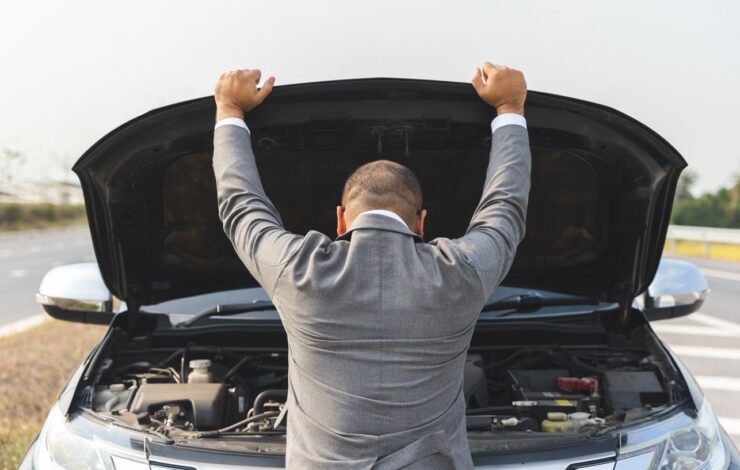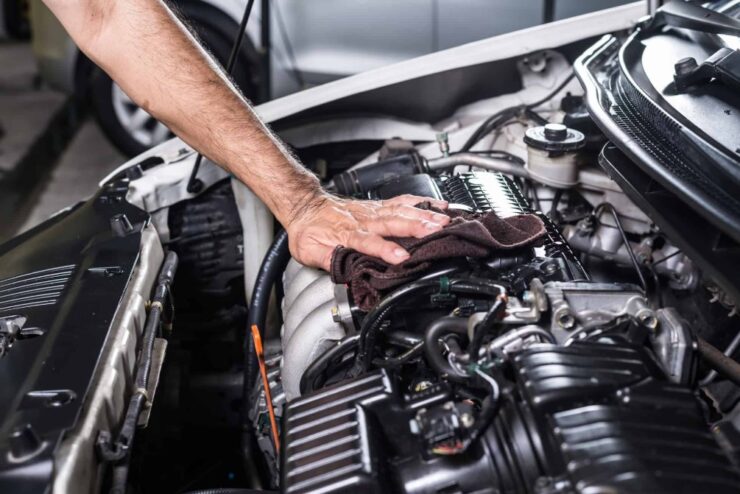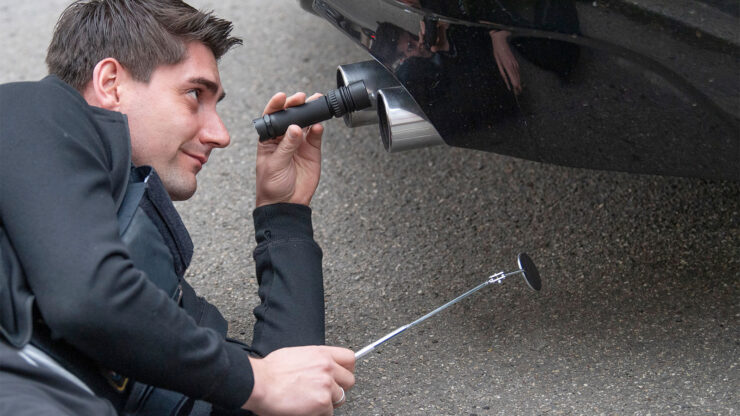Weird noises coming from your vehicle can drive you crazy. Some are harmless quirks, but others signal big trouble. Ignoring the wrong one could leave you stranded. Every clunk, screech, or rattle means something, and knowing what they mean saves time, money, and headaches.
Clicking Under the Hood – Electrical Gremlins or Worse?
A single click when turning the key? That means the starter isn’t engaging. A rapid series of clicks? That suggests a weak battery or corroded terminals. If nothing happens, check the battery cables before assuming the starter is dead.
The first thing to do is pop the hood and inspect the battery connections. If corrosion is present, cleaning them might solve the issue. If the clicking continues, the battery itself might be too weak to start the engine. A jumpstart could help in the short term, but replacing the battery may be necessary. If the battery is fine, the culprit could be the starter or the alternator failing to recharge the battery properly.
Possible causes:
- Weak or dead battery.
- Corroded or loose battery terminals.
- Failing starter motor.
- Bad alternator preventing the battery from charging.

Squealing When Accelerating – Your Belt Might Be Begging for Help
That high-pitched screech often means a loose or worn-out belt. If ignored, it could snap, leaving you without power steering or an operational alternator. The sound usually worsens when accelerating or when starting the engine in cold weather. A visual inspection of the belt can reveal cracks, fraying, or signs of excessive wear. Replacing the belt early prevents costly breakdowns.
Genuine auto part supply stores offer quality belts that last longer and perform better under strain. Cheap replacements wear out faster and can cause further damage. Investing in a high-quality belt ensures smoother operation and reduces the chances of getting stranded.
Warning signs:
- The squeal worsens when accelerating or in cold conditions.
- The belt appears cracked or frayed.
- The alternator or power steering system fails intermittently.
Knocking in the Engine – A Sound You Never Want to Hear
A knocking noise from the engine usually signals trouble. If it happens during acceleration, the fuel might be burning unevenly, which could mean low octane fuel, improper timing, or carbon buildup. Persistent knocking often indicates internal engine wear, such as worn-out bearings or failing pistons.
Low oil levels can also cause knocking. If oil runs too low, engine components lose lubrication, leading to metal-on-metal contact. Checking oil levels regularly and using high-quality oil prevents this issue. In cases where the knocking persists, an experienced mechanic should inspect the engine immediately, as this is the most important part of any vehicle.
Recommendation ─ When something needs replacing, quality parts make a difference. STS-Global Scandinavian Transport Supply provides genuine parts and components for a wide range of vehicles. Their selection includes transmissions, brake parts, engine components, and more.
Finding the right part prevents future issues and extends the vehicle’s lifespan. If you are looking for a genuine car part supply, check out: https://sts-global.com/car-parts.

Hissing – Something is Escaping That Shouldn’t Be
A hissing noise usually means air or fluid is escaping under pressure. This could be a coolant leak, a vacuum leak, or an issue with the brake system. If you notice steam coming from under the hood, a coolant leak is likely. A loss of power often points to a vacuum leak, which affects the air-fuel mixture and engine efficiency.
Potential causes:
- Coolant leak leading to overheating.
- Vacuum leak affecting fuel mixture.
- Brake fluid leak compromising stopping power.
- Cracked hoses allowing air or fluids to escape.
Ignoring a hissing noise can lead to overheating, brake failure, or poor fuel efficiency. Address the issue immediately to prevent further complications.
Rattling Beneath the Vehicle – Heat Shield or Exhaust Trouble?
A metal-on-metal rattle when driving over bumps usually means a loose exhaust part or heat shield. If the noise is louder during acceleration, the catalytic converter or muffler may be failing.
Sometimes, a simple fix involves tightening a loose heat shield, but in other cases, replacement is necessary. Frequent rattling may indicate a broken exhaust mount or worn suspension bushings. Delaying repairs can lead to more severe damage, affecting the vehicle’s performance and safety.
Possible causes:
- Loose or broken heat shield.
- Catalytic converter damage.
- Worn-out suspension components.

Grinding When Braking – Time to Replace Those Brake Pads
Grinding when pressing the brake pedal means metal is contacting metal. This indicates that the brake pads are completely worn down, and the rotors are at risk of damage. Driving with grinding brakes not only reduces stopping power but also significantly increases repair costs.
A squeaking noise before grinding usually means the pads are nearing the end of their lifespan. If replacement happens early, the rotors remain undamaged. Choosing high-quality parts from a genuine auto part supply shop ensures reliability and longevity.
Thudding or Thumping – Could Be a Tire Issue
A rhythmic thud could mean a flat spot on the tire, an unbalanced wheel, or a suspension issue. If the noise gets louder with speed, it’s likely a tire problem. A misaligned wheel can also cause irregular wear, leading to vibration and uneven tire degradation.
Regular tire rotation and pressure checks help prevent these issues. If a bulging sidewall or exposed cords appear, replacing the tire immediately is necessary for safety. Fleet genuine parts supply centers offer durable tires suited for various driving conditions.
Final Thoughts
Strange noises often signal that something needs attention. Some are minor, but others indicate major repairs ahead. Knowing the difference saves time and money. Never ignore sounds that seem out of place. Catching problems early prevents costly breakdowns.
Regular inspections, quality replacements, and timely maintenance keep your vehicle running smoothly. Listen to your vehicle. It always tells you what’s wrong.

